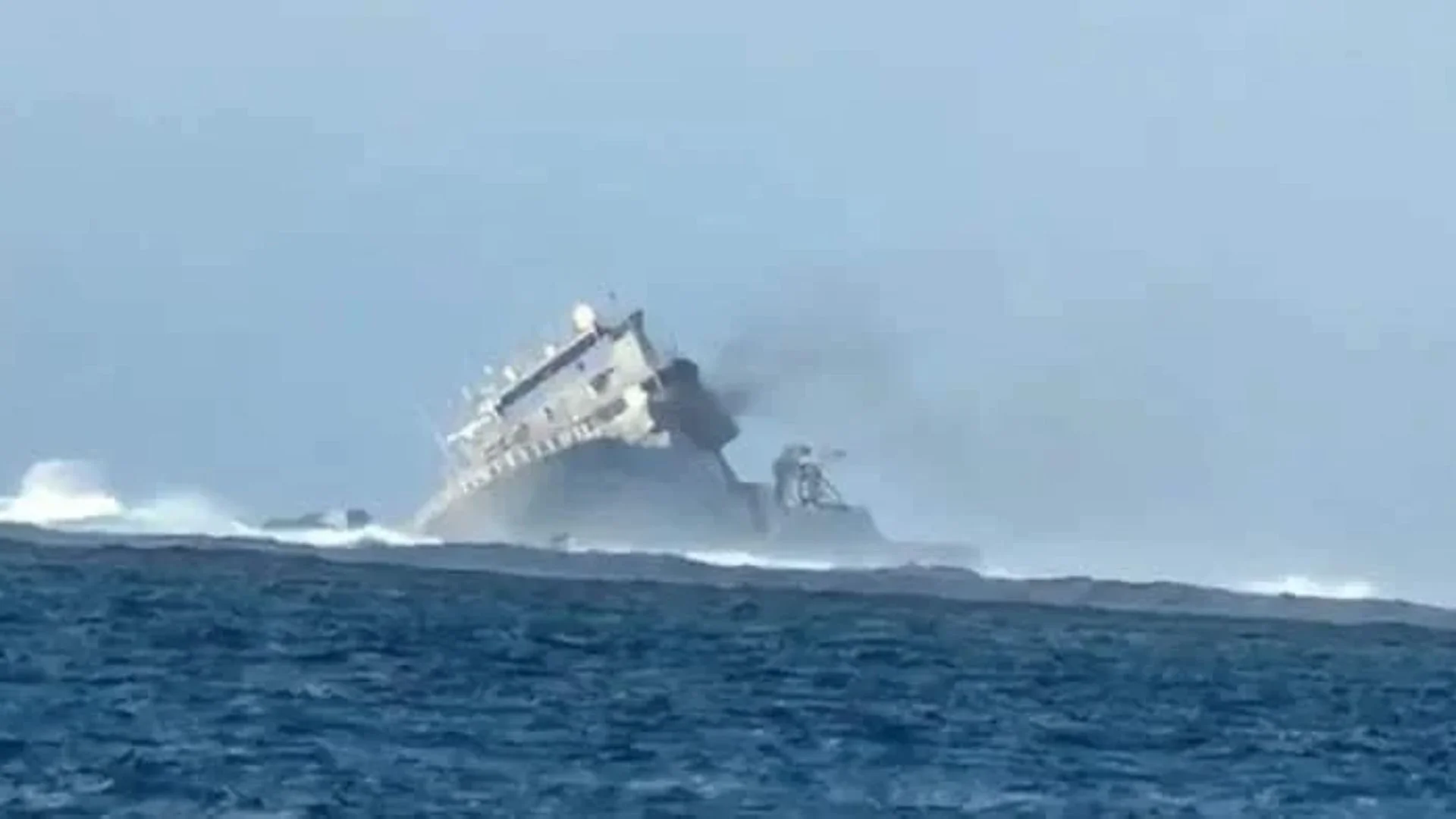
The New Zealand Navy has reported the sinking of the HMNZS Manawanui, marking its first ship loss since World War II. The specialized dive and hydrographic vessel sank on a reef off the coast of Samoa on Sunday, following a loss of power while conducting a reef survey approximately one nautical mile from Upolo Island’s southern coast. By Sunday morning, the vessel was “listing heavily,” with smoke observed around 6:40 a.m. It completely submerged by 9 a.m., prompting a court inquiry into the circumstances surrounding the sinking.
Acquired in 2018 for around $100 million NZD (approximately $61 million USD), the HMNZS Manawanui was designed to survey harbors and facilitate support operations for larger ships during combat or disaster relief missions. It was one of the newer additions to the New Zealand Navy, built in the early 2000s.
The sinking has raised serious environmental concerns, especially among local businesses and conservationists in Samoa, where the waters are vital for fishing and tourism. The manager of Coconuts Beach Club in Maninoa, Brian Rose, expressed worries for the local sea turtle population, stating, “I hope nothing happens to them.”
New Zealand Defense Minister Judith Collins emphasized that assessing the depth of the wreck and the risk of an oil spill is a priority, as the vessel contained various hazardous materials, including diesel and lubricating oils. Acting Samoan Prime Minister Tuala Tevaga Iosefo Ponifasio confirmed the likelihood of an oil spill, stating, “The HMNZS Manawanui is not recoverable and has sunk into the ocean.”
In response to the incident, Prime Minister Chris Luxon announced that “environmental spill kits” were dispatched from New Zealand to mitigate potential damage. Following a distress call received shortly before 7 p.m. on Saturday, all 75 crew members were successfully rescued, but witnesses reported seeing smoke billowing from the wreck shortly after. Local residents expressed concern for their beach, reef, and marine reserve, as well as the impact on their livelihoods as fishermen.















